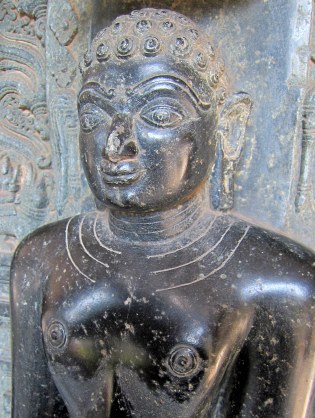Some clarifications for Dr. White
Dr. James White’s stated reasons for not debating me are based on misunderstanding.
Dr. James White’s stated reasons for not debating me are based on misunderstanding.
You say you’ve looked into the biblical credentials of “the doctrine of the Trinity.” But have you actually read anything by unitarian Christians?
Does it make sense to say that God is a soul with three cognitive and volitional faculties – but is nonetheless not a self?
Weighing incompatible definitions of trinitarian theology and unitarian theology.
Dr. White vs. John on the thesis of the 4th gospel.
It ain’t necessarily so It ain’t necessarily so The t’ings dat yo’ li’ble To read in de Bible, It ain’t necessarily so In God as Biblical Character and as Divine Reality, the Maverick makes the curious distinction between a Biblical character, and the external reality corresponding to the character. The two philosophers [Aquinas and Spinoza] are clearly referring to the same Biblical character when they… Read More »Necessarily so?
 The news came by state radio, state newspaper, and state television. Great Leader Kim Il-Sung had make a startling announcement.
The news came by state radio, state newspaper, and state television. Great Leader Kim Il-Sung had make a startling announcement.
Hereforth, my beloved son Kim Jong-Il is also your Leader.
What did it mean?
“They are really one Leader” said Jun-suh. Look at their portraits. Are they not one man, photographed slightly differently?
“No,” argued Seo-yun; Kim Jong-Il is the son of Great Leader.
“Well, that would make him also a Great Leader, wouldn’t it?” And we all know that there is just Great Leader. We have been taught this all our lives.
Seo-yun countered, raising an eyebrow, “One can’t be one’s own son…” She paused to let the point sink in.
But Jun-suh was unmoved. He pressed his case. “The Great Leader is one. This goes without saying. Our love and loyalty are for him, and him alone. It is him alone we praise at our festivals.”
“Wait… I was at that recent rally… the Great Leader and his son our Leader were both there!”Read More »A Tale of Three Kims – Part 1
 In a recent public presentation I tried to define two concepts of idolatry, but I wasn’t quite happy with either of them.
In a recent public presentation I tried to define two concepts of idolatry, but I wasn’t quite happy with either of them.
So here’s the 2.0 version, submitted to you for criticism and comment:
This is literal idolatry, which is the rule rather than the exception in the world’s religions – bowing, etc. to things like this Jain statue I photographed in Bombay. It was this sort of practice which was forbidden in the ten commandments:
You shall not make for yourself a carved image, or any likeness of anything that is in heaven above, or that is in the earth beneath, or that is in the water under the earth. You shall not bow down to them or serve them… Exodus 20:4-5, ESV
“Serve” here, I think, clearly signifies religious worship specifically. It is not clear, I think, that it is against any sort of respect for images, e.g. saluting a flag. But it is against the sort of image honoring typical of ancient near eastern religions.
Apart from this command, it seems to me, it is by no means obvious that the one God shouldn’t be worshiped by means of some object, be it representational or abstract. After all, millions, probably billions of people do this, either for some god or for the one God.
But very often in the New Testament, it is not the above concept which is in view. Instead, they have in mindRead More »What is idolatry?
Here’s one reason why some theologians love to appeal to “mystery.” Regarding the second half of the second Christian century, the great church history von Harnack observes, …an urgent impulse necessarily made itself felt to define the contents and value of the Redeemer’s life and work, not, primarily, from the point of view of the proclamation of the Gospel, and the hopes of a future state,… Read More »von Harnack on logos theories and mystery
Because you’re too busy to read the book, here is Dr. John M.G. Barclay review of Dr. N.T. Wright’s enormous Paul and the Faithfulness of God (kindle) in the Scottish Journal of Theology. (H/T Dr. Denny Burke.) Below are some choice bits (emphases added). You’ll have to read the whole thing to learn why there’s a Russian doll here. …the narrative of the Messiah Jesus, who takes on… Read More »Barclay reviews Paul and the Faithfulness of God
In this episode, Dr. Craig A. Evans and I discuss the surprising and bold methodological claims about doing history in chapter 4 of Dr. Ehrman’s How Jesus Became God. Along the way we bring up such topics as Joseph Smith, the Book of Mormon, the historicity of the New Testament gospels, the views of David Hume (pictured above) on belief in miracles, the probability of… Read More »podcast 39 – Dr. Craig Evans on Dr. Bart Ehrman’s historical methodology
According to the Arizona Daily Star, ‘Lord’ is fading at some churches, because they think it smacks of patriarchy.
When ideology has taken over to the point that you think it’s inappropriate to describe God almighty in terms that connote power (horrors!)… wow.
And then, what about Jesus?Read More »“Lord” allergies among “mainliners”
In thinking about the Trinity, 380 and 381 are perhaps the most important dates to remember.
Can one be a trinitarian without believing in a tripersonal God?
“The Church, though dispersed throughout the whole world…has received from the apostles and their disciples this faith: in one God, the Father Almighty…”

Poetry, anyone?
Karen Armstrong is a famous ex-nun who has written, among other things, a puffing biography of the prophet Muhammad. She frequently appears on TV confidently gassing about various religious matters. But I was really taken a back by this, which I ran across in a podcast:
Ms. Armstrong: Well, you see, I think theology is poetry. That’s what my Jewish friend, Chaim Maccabee, told me all those years ago when he quoted Hillel’s golden rule to me and said, “You know, it doesn’t matter what you believe. Theology is poetry.”Read More »How not to do theology, Or: the theological Vogon (Dale)
Have you heard both sides of this disagreement? This short, readable debate book will help you to go deeper.
In the most recent post in this series, I plunged into some metaphysical issues about God, essence, existence, and necessity. As promised, I now discuss why is it impossible that God doesn’t exist. Let me start by saying that I know I’m out on a speculative limb here. This is uncertain business, metaphysics. But I’m going to state my views forthrightly. Refute them if you… Read More »Dialogue with the Maverick Philosopher: God is a being, not Being itself – part 5